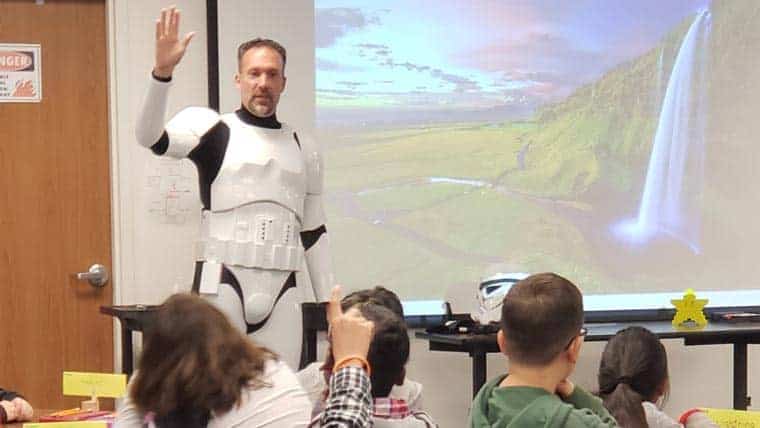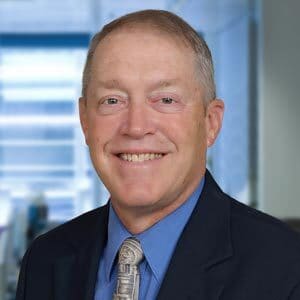I love being an engineer, and I love sharing that enthusiasm with others—and you will not find a more welcoming, enthusiastic audience than a room full of 5th graders. For the past several years, I have been actively involved in STARBASE, a program dedicated to engaging and encouraging students to get involved in a STEM field. STARBASE is a program in all 50 states run by the National Guard, of which I have been a member for many years. The program reaches out to a wide variety of STEM professionals, and engages them in speaking to classes of students about their experience, one day over a five-day period.
I was approached by one of my military colleagues and asked to speak to the Sacramento program, and once I did, I was hooked—and then I thought of my colleagues in the Society of American Military Engineers (SAME). I have been a leader in my local SAME post for years, and I knew there were lots of people who would be great in a mentorship role. Now, I not only am an active speaker and mentor, but I also coordinate other speakers for STARBASE.
To me, it is very rewarding sharing stories from my jobs as a civil engineer and combat engineer, and getting the kids excited and asking questions. It is also fun working with the students, who do STEM-related projects like building robots, running flight simulations, and even launching a rocket. It not only helps you rediscover what got you excited about STEM in the first place; it also serves to put a face and a real person to the abstract concept of a career in STEM.
Beyond that, mentorship is a great way to positively impact your community, and really, our country as well. STEM careers are vital to the health and success of our nation—from doctors nurses, scientists, to engineers, much of what we need every day to live, work, and thrive is created by those in STEM careers. And as my Boomer generation is getting ready to retire, it is critical that we have people who are qualified to replace us in our communities. Mentorship and community outreach are a large part of encouraging people—especially children—to pursue a career in STEM.
Mentorship and community involvement at any level is valuable, but it is especially important to reach kids when they are young. The younger we can engage students, the better—because often, by the time kids are in high school or college, it can be too late to light that fire, or students are already actively pursuing other fields. It is also critical to reach kids who may not have otherwise considered STEM as an option. That’s why STARBASE works with 5th grade students in schools with lower income levels. When it comes to engaging the next generation of community builders, reaching across a wide variety of demographics just makes sense. Diversity in perspectives can only be a strength for our industry.
Of course, not every child we reach will ultimately go on to pursue a career in STEM—but a few will. And that may make all the difference. To me, even inspiring one child who would not otherwise have pursued STEM is worth it.



